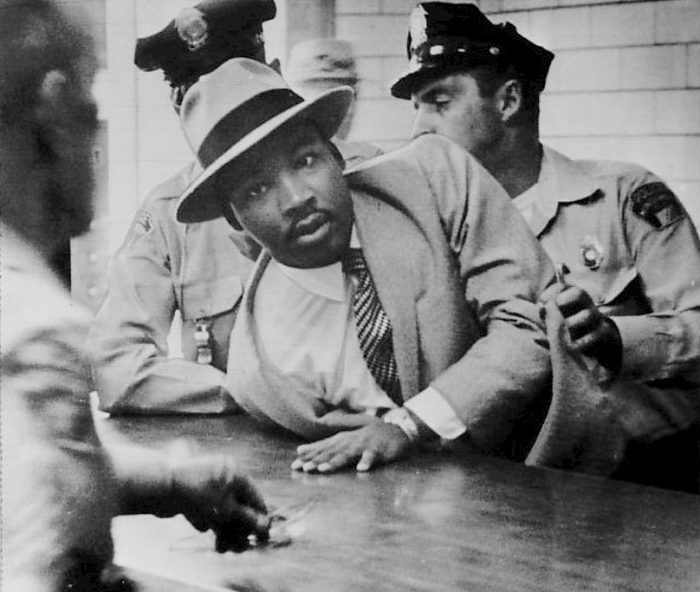Martin Luther King Day 2021 has just come and gone here in the United States.
Celebrations were muted and reflective. I observed many well-intentioned white friends and online connections post inspiring quotes by Dr. King. And for sure, we urgently need the strength of his uplifting, unifying words right now as a balm for the rawness of our collective wounding—not just in the U.S., but around the world.
Weariness and confusion is where we’re at right now. And no amount of conspiracies about baby-eating Satan worshippers will dispel the actual, real discomfort of being here now, face-to-face with the universal law of cause and effect. In this case, the unexamined, ignored effects of rampant European colonization and its monstrous offspring, the many-headed Hydra, white supremacy.
As a brown woman, I’m writing this for white people who are concerned and appalled at what’s being revealed, unraveled; for the ones who want to do something, to participate in making actual change but are paralyzed by the fear of saying or doing the wrong thing.
Instead, your good—and deeply necessary—intentions for change become impotent through performative posts of black squares on social media, which frankly speaking, just elicit frustrated eye-rolls from people of color.
I see you.
I see your horror at what’s unfolding, and your noble intentions, your frozen capacity to move forward in action effectively. Everything is so terrifically heightened right now; saying or doing the wrong thing feels like an excruciating bed of nails.
I see the unexamined, unresolved guilt for the actions of your ancestors, and your inability to see how the oppressive systems of that structure are so deeply embedded in this culture that you don’t recognize how you participate in them—how you perpetuate them within yourselves and your own lives, unknowingly handing them down to your children.
This is not about meting out yet more blame, shame, and guilt, but the unyielding modus operandi of colonizer culture—it’s about starting where we’re at.
As much as this time is profoundly complex and painful for BIPOC, it is equally so, for different reasons, for white people. And this status quo cannot change without your active participation in the difficult work of observing, unlearning, and recreating.
This is what I’ve come to understand and experience as inner decolonization work.
For me, the past seven years have been spent in the trenches of unlearning internalized structures about my place in the world as a woman of color, about anorexic notions of deservedness, unearthed through a difficult excavation of my 41 years; and in engaging with the emerging realizations of all the ways colonization has played out in my life, my body, and out into the world through my silencing of myself.
I’ve learned a lot—enough to write a book on the topic, which I’m in the process of doing. But in particular, I’ve discovered two things:
1. The extent to which one lives with unexamined, conditioned structures of oppression within, is directly proportionate to the extent to which they manifest and play out in the world and nourish those very same structures.
It’s not our fault their foundations are so deeply embedded in culture and society that we’re not aware of them, unless we actively engage in discovering and unlearning—in inner decolonization.
2. That white people have also been internally colonized, specifically in the participation in and perpetuation of attitudes and systems of oppression.
Obviously, out-and-out racists and white supremacists actively promote this system, as we’re currently witnessing in all its hideous glory. But for those of you who want to make change—who feel horrified at the ghouls of white supremacy—and who vehemently deny having a racist bone in your bodies, your colonization has been insidious, unconscious. And left unexamined, and unresolved, it will continue to insidiously feed the very things you claim to be appalled at.
Let me emphasize: this is not about finger-pointing or blaming.
This is a call to action; especially if you’re a leader in any capacity, if you’re a parent. The work of unlearning and dismantling the deep structures of colonization is like a sort of dying—it’s not easy.
It demands that you get out of your comfort zones. It demands that you make time for this work and seek out support to help you navigate through, guiding you into becoming aware of ancient blind spots, holding you accountable so that you don’t crawl back into your comfort zones and fall back to sleep.
I’ve noticed that many businesses and organizations are implementing action toward this process of unlearning within their institutional cultures. This genuinely makes me want to whoop with joy. Until individuals also engage in this work however, the unlearning won’t take root within the deep layers of the psyche.
And that’s what we all collectively need to do in order to create actual, real, lasting change out in the world.
~

 Share on bsky
Share on bsky





Read 8 comments and reply